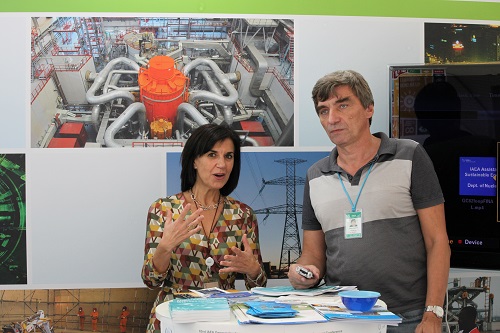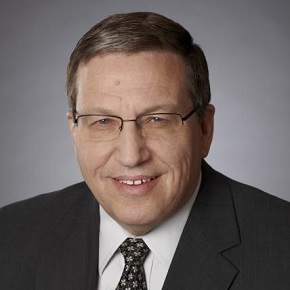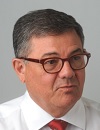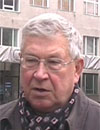 |
||
|
Amparo Gonzalez Espartero: our task is to help member states AtomInfo.Ru, PUBLISHED 29.01.2019 Amparo Gonzalez Espartero, Team Leader for Spent Fuel Management in the IAEA's Nuclear Fuel Cycle and Materials Section, answers questions from correspondents for the electronic publication AtomInfo.Ru. CONTINUED BELOW Amparo Gonzalez Espartero, (c) AtomInfo.Ru  Dealing with a back end Ms Gonzalez Espartero, you are the team leader of spent fuel management. Could you explain to our readers the activities your team is doing here, in the Agency? We are dealing with the back end of the nuclear fuel cycle until spent fuel is declared as a waste, covering storage options, reprocessing and recycling, transportation of nuclear materials and advanced fuel cycles related to Generation IV reactors. Since our main task is to help Member States, we organize international conferences to enhance sharing information and transferring knowledge. We also draft papers and now we are drafting a high-level paper dedicated to policymakers and decision takers on different nuclear fuel cycle options, taking into consideration all envisaged options, either currently implemented at the industrial level or at the R&D stage to improve the sustainability of nuclear energy. As you know, some countries have decided to proceed to direct disposal of spent fuel. Others have decided to reprocess and recycle uranium and plutonium using MOX fuel in some of their reactors, as France and the Russian Federation. Some countries are looking for advanced technologies to reduce the burden of the generated waste through the partitioning and transmutation of minor actinides and long-lived fission products. To give an example, Japan is currently developing a very basic research project to find an effective solution for the transmutation of long-lived fission products using accelerator systems. So, our role is to bring them together and support them to work in a cooperative network. We coordinate national research and development activities carried out by Member States through coordinated research projects (CRP). We do not fund and carry out the research, but we host workshops and other events to promote the sharing of information and lessons learned among different teams from different countries pursuing the same overall research objective. Currently our team does not have any CRP on advanced fuel cycles but we have planned for the biennium 2019-2021 one CRP dedicated to information sharing on advanced fuel cycles for Gen IV reactors. You say information sharing but some information of the advanced fuel cycles is strictly commercial and the owners will not be happy to share it with other countries. Of course, there is a commercial part of the knowledge that could not be shared. But there is still a lot of information that can be shared with the Agency and Member States. We have examples of activities where countries such as France, the Russian Federation, India, Japan, China, USA and the Republic of Korea are cooperating and sharing information. I will give you an example. We have extremely good cooperation between France and Russia in our activities. This happens for the CRP we are going to run, for the IAEA Nuclear Energy Series documents we are drafting - it is a strong cooperation between these two countries. What would be the result of your planned CRPs? The output of our CRPs is a publication where all shared information from Member States is gathered. This publication is publicly available on the Agency's website. Do you have any activities related to the minor actinides? Specifically dedicated to minor actinides - not today. But we know that this topic is important for some Member States. Currently, the European Commission is funding a R&D project on developing processes for minor actinides partitioning. This topic is also the subject of interest for countries such as the Russian Federation, Japan, China, Republic of Korea, India and USA. The Agency can serve as a platform to have all these countries collaborating in the near future. Do you cooperate with the OECD/NEA? Briefly speaking, yes we do. We try to coordinate and not to duplicate our activities with the OECD/NEA. To do so we participate as observers in their activities and vice versa. For example, there is an OECD/NEA observer in the IAEA Technical Working Group on Nuclear Fuel Cycle Options and IAEA staff are observers in the OECD/NEA Experts Groups dealing with Advanced Fuel Cycles and Advanced Fuels. We try to avoid duplication and to have complementary activities in both agencies. From Ekaterinburg to Vienna We know that you participated in the FR17 conference organization in Ekaterinburg. What is your opinion about that conference? The conference was a great event. It was extremely well organized by Rosatom. We had very broad participation, around 500 scientists. The scope of the conference was also very broad. We covered such topics as the design of fast reactors, operation and safety issues, behavior of materials, tests and simulations, economics, professional development, decommissioning and so on. The main conclusion of the conference was that fast reactors are a technology that is ready to be deployed; however, funding, competitiveness and public acceptance are, as for the current technology of nuclear power, the main issues. In this regard, harmonization of safety standards at an international level will play a leading role in achieving these goals.International collaboration and cooperation in this matter is vital for the development of fast reactors. Also, during the conference it was recognized that sodium-cooled fast reactors are the most proven technology so far. Finally, it was underlined that young professionals should be actively involved in this field. We selected and awarded five young nuclear scientists seeking innovative solutions for a low-carbon future. The five winning research proposals were mainly focused on innovative solutions for cooling systems, to improve safety aspects of the fast reactor core, improved fast reactor fuel processing and an open-source code to model different fast reactor systems. What new conferences will you organize for the advanced fuel cycles? We are organizing an international conference on the management of spent fuel from nuclear power reactors in Vienna next June.
Over the past 20 years these regular conferences organized every four years have been related to the current implemented options for managing spent fuel. Now we have opened the scope to include topics on advanced fuels and fuel cycles. For example, we will discuss how advanced fuels impact the back end of the fuel cycle or how we can deal with spent fuel and wastes coming from Generation IV reactors. The scope of the conference covers the management of spent fuel from nuclear power plants from past, present and future nuclear energy systems and how it can be affected by decisions taken during the other steps of the nuclear fuel cycle (front end including fuel designs and fabrication). Will it be an expert meeting or political conference? It will be an expert conference where operators, regulators, researchers, technology developers and other specialists will take part. We are organizing it in cooperation with the IAEA's Department of Nuclear Safety and Security, and we want to discuss the spent fuel issue as broadly as possible. For sure the representatives of key Member States will be attending, such as France, Japan, the Russian Federation, the United States of America, Republic of Korea and many others. Thank you, Ms Gonzalez Espartero, for speaking with the electronic publication AtomInfo.Ru. Other news: 454 nuclear units are operating in the world Another 54 units have the status of the being built one. The MoU was signed at the 9th Session of the High-Level Russia-Singapore Inter-Governmental Commission in Singapore. Nuclear fuel loading has commenced at the 4th power unit of Tianwan NPP On August 25, 2018 the first fuel assembly was loaded into the core of Tianwan NPP Unit 4 in China. |
Hero of the day 
WANO appoints Tom Mitchell as the new WANO Chairman The World Association of Nuclear Operators (WANO), the world's leading safety organisation for commercial nuclear power plants, announced that it has elected Mr Tom Mitchell as the next Chairman of WANO. INTERVIEW
Peter Prozesky OPINION
Victor Murogov Last news:
|
Licence Р В Р’ВВВВВР В Р’В» №ФС77-30792. ATOMINFO™ trademark.

